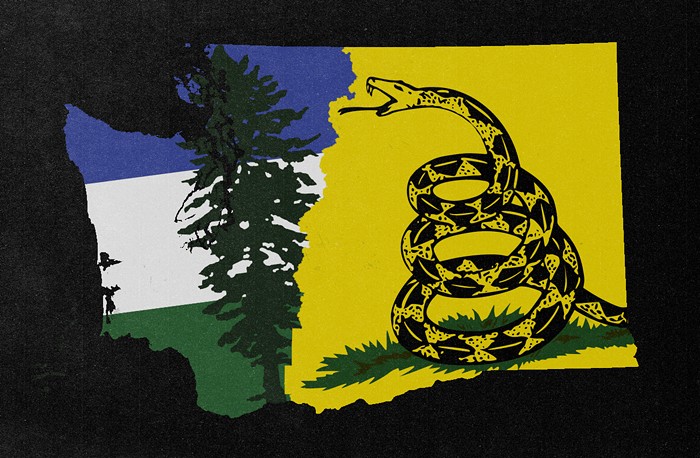
Yesterday, Roy Moore, the accused pedophile who is running in Alabama's Senate race, claimed he was something of a messiah of American moral values that needed to be upheld. Moore, as we all should see, bases morality not on human sociality (the human as animal) but a particular conception of the family (human culture). By moral, he means the family as it's understood by the cultural standards of a certain race of Americans.
Further more, the reason why he is a member of the GOP is because there was a moment in the history of capitalism when the middle-class family was considered to be the most stable, and therefore the most useful/ideal, unit of consumption. Interesting enough, the GOP aligned itself with this ideal—pro-family or value voters—only in the 1980s. A decade before that, a leader of the GOP could establish and fund Planned Parenthood without blinking an eye or worrying about value votes. The family ideal, however, began its decline in the 1960s with the neoliberal revolution, which adopted important features of the counter-culture movement (this explains how the cultural response to the classic capitalist family became the neoliberal call to "think different") but rejected the labor movement (the class response to capitalist distribution).
Grasping this complicated transition, which was actually initiated by Jimmy Carter, the first neoliberal president, and his nomination of Paul Volker to the Chairman of the Federal Reserve in 1979 (the first year of the last decade of the short 20th century), will provide the key to understanding why Moore's conception of the family is not about the family as such but the increased displacement of the white heterosexual male as the center of the once-dominant unit of consumption. For the past 40 years, the GOP has heavily farmed this field of white-male feeling for votes.
And so we have a morality that is very flexible because it is cultural and not properly animal. Let's think along these lines for a moment. What is poorly understood by most people is that there is a difference between human sociality and human culture. We are hyper-social before we are hyper-cultural. This point is clearly and convincingly made in Hal Whitehead's essay "Social and Cultural Evolution in the Ocean" in the book The Deep Structure of Biology: Is Convergence Sufficiently Ubiquitous to Give a Directional Signal?. The social is, and can only be the kind of animal we actually are. It's deeper and changes very slowly. Culture, on the other hand, springs from the social with the function of adapting the human to a variety of temporally and spatially changing environments.
Indeed, the anthropologists Robert Boyd and Peter J. Richerson claim in Not By Genes Alone: How Culture Transformed Human Evolution that the wildly unstable climate of the Pleistocene was responsible for increasing the importance of culture in human populations. The Holocene introduced a global temperature stability from which we appear to be leaving only after 12,000 years. The combination of climate stability and hyper-culture can be seen by anyone who lives in a city or on a farm.
But the level of cooperation that's needed to manage a farm or a factory or a city does not have its roots in culture but in the social, the body of what Jared Diamond called "the third chimpanzee" in his best and first book. And what I have stressed in my essays for the online arts journal e-flux is that culture, which is supposed to enhance the social, can also retard or totally negate it. The advantages of flexibility exposes it to this possibility. Though Moore can enjoy all of the fruits of cooperation (malls, diners, spacious automobiles, phone calls to the mothers of girls), he imposes the morality of another kind of animal or ape (orangutan?) by means of culture (which is variable) on the constant body of the human social. But what kind of morality is consistent with the body of the human social? If the body speaks, it says only one thing to other bodies of its kind: Make me equal to you.
Human equality does not come to us from the stars or the clouds or the tops of mountains. It arises from the meat of our bodies, and, more importantly, it is, to use the words of Stephen Jay Gould, "a contingent fact of history." The universality of human equality is a consequence of our newness. Human morality is not like light. It does not "travel at magnificent speeds around the universe." We have not had enough evolutionary time to break and diverge from the first and final call of our bodies: Make me equal to you. This is indeed the morality that the non-human apes in War for the Planet of the Apes struggle with. Their bodies are clumsily conducting a sociality whose true medium is the body of the third chimpanzee.















